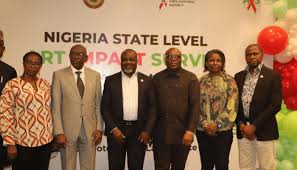Prominent health experts are calling for a holistic approach to infertility, stressing the hidden impact of environmental toxins and lifestyle choices.
They emphasize the need for greater awareness and preventive measures, pointing out how everyday exposures and habits may be silently undermining reproductive health.
This important message was a central theme at the Merck Academic Session on Reproductive Medicine for journalists, held during the Merck Foundation Media Training in Dubai. The event brought together leading experts from various countries, who emphasized the urgent need to address environmental and lifestyle-related factors in tackling infertility.
During his powerful presentation, Professor Oladapo Ashiru, President of the African Reproductive Care Society and a leading researcher in reproductive endocrinology and infertility, shed light on the widespread impact of environmental toxins on fertility. He identified pesticides, heavy metals, and industrial chemicals as major disruptors of reproductive health.
From air pollution to everyday products like cosmetics, he explained that exposure to harmful toxins is far more common than most people realize. These substances do not only harm the individual exposed—they can affect up to three generations. Citing studies from Nigeria and South Africa, Professor Ashiru linked declining sperm counts and increasing infertility rates directly to environmental toxins.
The session revealed alarming statistics: one in six people worldwide faces infertility, and the situation is expected to worsen without urgent action. Professor Ashiru issued a stark warning that by the year 2050, 93 percent of countries may fall below the population replacement level. According to him, the time to act is now.
As part of the solution, he advocated for detoxification therapies—particularly Maya therapy—as a promising approach to managing toxin-related infertility. He emphasized that patients exposed to industrial chemicals, heavy metals, or environmental pollutants often benefit from comprehensive detoxification before starting fertility treatments.
He shared a striking case study of a woman who suffered repeated miscarriages due to antimony exposure from prolonged barefoot driving. This, he noted, underscores the urgent need for public awareness and preventive measures.
Professor Ashiru also raised concerns about everyday household and personal care items, such as plastics and cosmetics, that release endocrine-disrupting chemicals. He called for a stronger focus on environmental health in the fight against infertility, urging individuals, healthcare providers, and policymakers to recognize and address these hidden threats.
A woman is expected to use over a ton of lipstick in her lifetime. Without proper quality checks, this can lead to lead poisoning, he cautioned. He went on to advocate for safer alternatives and called for stricter regulation of consumer products to protect public health.
He called on healthcare providers, policymakers, and researchers to work together to reduce environmental risks.
Ashiru urged hospitals to educate patients about exposure hazards, especially those working in high-risk industries such as oil and gas. He emphasized that prevention is always better than cure.
The experts unanimously agreed that a comprehensive and multidisciplinary approach is essential for effectively addressing infertility and its many complex causes.
Ashiru highlighted that our environment plays a major role in determining reproductive health. To safeguard the future, he said, we must prioritize safe practices and actively advocate for cleaner and healthier living conditions.
Earlier, the Scientific and Medical Manager at Merck Foundation, Dr. Shadha, emphasized the Merck Foundation’s dedication to improving healthcare access in underserved communities.
She explained that through their scholarship programs, they are building local capacity in more than 44 critical medical specialties, including reproductive medicine. These initiatives are designed to close the gap in access to quality healthcare.
The foundation also provides hands-on training in fertility and embryology through its partner institutions around the world.




No comment